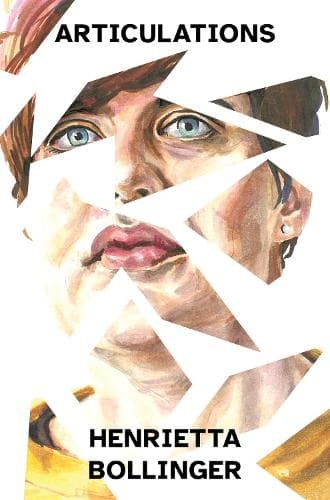Review: Articulations
Reviewed by Elizabeth Heritage
Full disclosure: Henrietta Bollinger has recently asked me to do some publicity work for them. I had no hesitation in accepting this new role, which wasn't in place when I started this arotake pukapuka (book review).
Just as well then that I loved this pukapuka. Articulations is a collection of Bollinger’s essays, many of which were originally published in Salient as the column they established there, Token Cripple. It’s relatively short, 131 pages with 19 chapters spaciously typeset. Bollinger has said they hoped to make it small and light enough to take to a café to read. This is indeed what I did and recommend doing.
The essays focus on Bollinger’s life as tangata whaikaha (a disabled person) and wheelchair user here in Te Whanganui-a-Tara Wellington, city of hills and unexpected staircases and truly weird streets. If I’m making it sound like the whole book is a complaint about inaccessibility – it isn’t. But the constant push and pull between one’s body and one’s environment, and the possibilities and limits inherent in both, is a theme throughout.
The Social Model [a way of conceptualising disability] positions disability as a process that happens when a person comes into contact with a world that has been built without them in mind. The world, and not the body, is disabling … I disappear into this theory, a relief, a reason to put my body aside. This is a daylight trick. At night I fall getting into bed, my legs fold painfully … Something about crawling on your stomach down an apartment hallway, knocking on the doors of startled neighbours for help, makes it all seem less of a construct. This is mostly due to the carpet burn.
This was one of many points at which I laughed out loud. Bollinger has lived their whole life as tangata whaikaha – for them, being disabled is normal. They write about their experiences with clarity, humour and self-compassion while retaining their sharp activist sense of what needs to change. Articulations welcomes readers in while never letting ableism off the hook. I particularly liked the author note about four-fifths of the way through that gives permission to kaipānui whaikaha (disabled readers) to stop reading now, as things were about to get dark.
If you can’t read this today, tomorrow or ever, you can still count this as a book you finished reading … If you are non-disabled and have found any part of this book reassuring, maybe challenge yourself now, okay?
I cannot finish this review without praising Articulations also for how extremely gay it is. Bollinger is queer and tells what is for many of us a familiar story about the process of realising their queerness and starting to remove the blankets of heteronormativity and the strict gender binary in order to be their authentic self. The stories in Articulations feature stories of crushes, love, relationships and sex, including hiring the services of a sex worker.
And now the publicity work: On Saturday, 10 November 2023 I will be chairing a Crip the Lit session at LitCrawl called Letters to Disabled Friends at VerbWellington and Bollinger is one of the seven kaituhi whaikaha (disabled writers) featured. They will also be appearing at two other Verb festival sessions, including one discussing Articulations.
You can find out more on the Verb website: https://www.verbwellington.nz/
Crip the Lit is a group founded by Robyn Hunt and Trish Harris to promote kaituhi whaikaha. If this sounds like you, please email cripthelit@gmail.com to join. You don’t have to prove your disability or have been formally published – if you are a writer who identifies as disabled in any way, that’s good enough for us! Nau mai, haere mai. For more info on Crip the Lit – https://artsaccessadvocates.org.nz/crip-the-lit-telling-our-stories-our-way
Reviewed by Elizabeth Heritage
